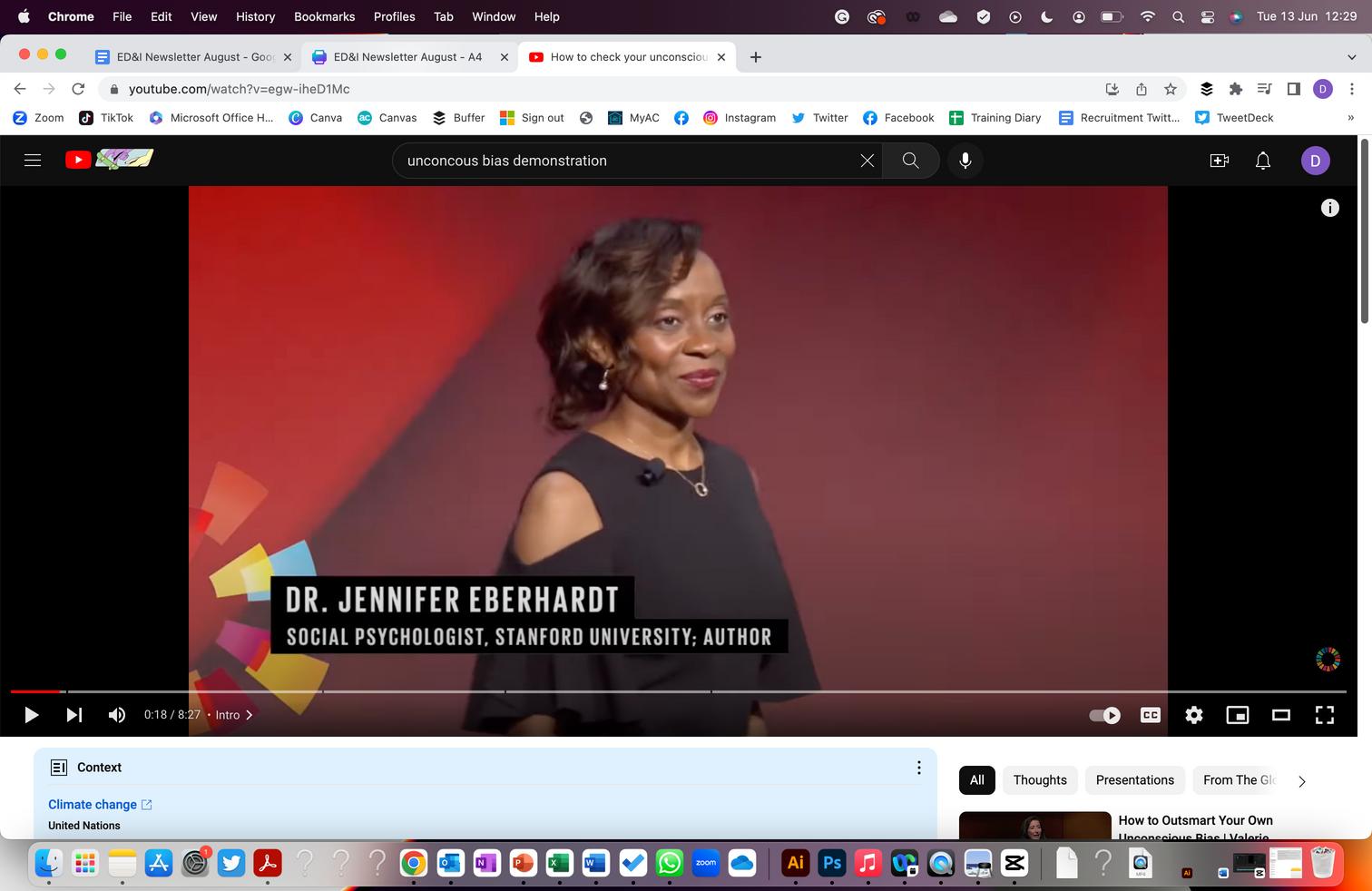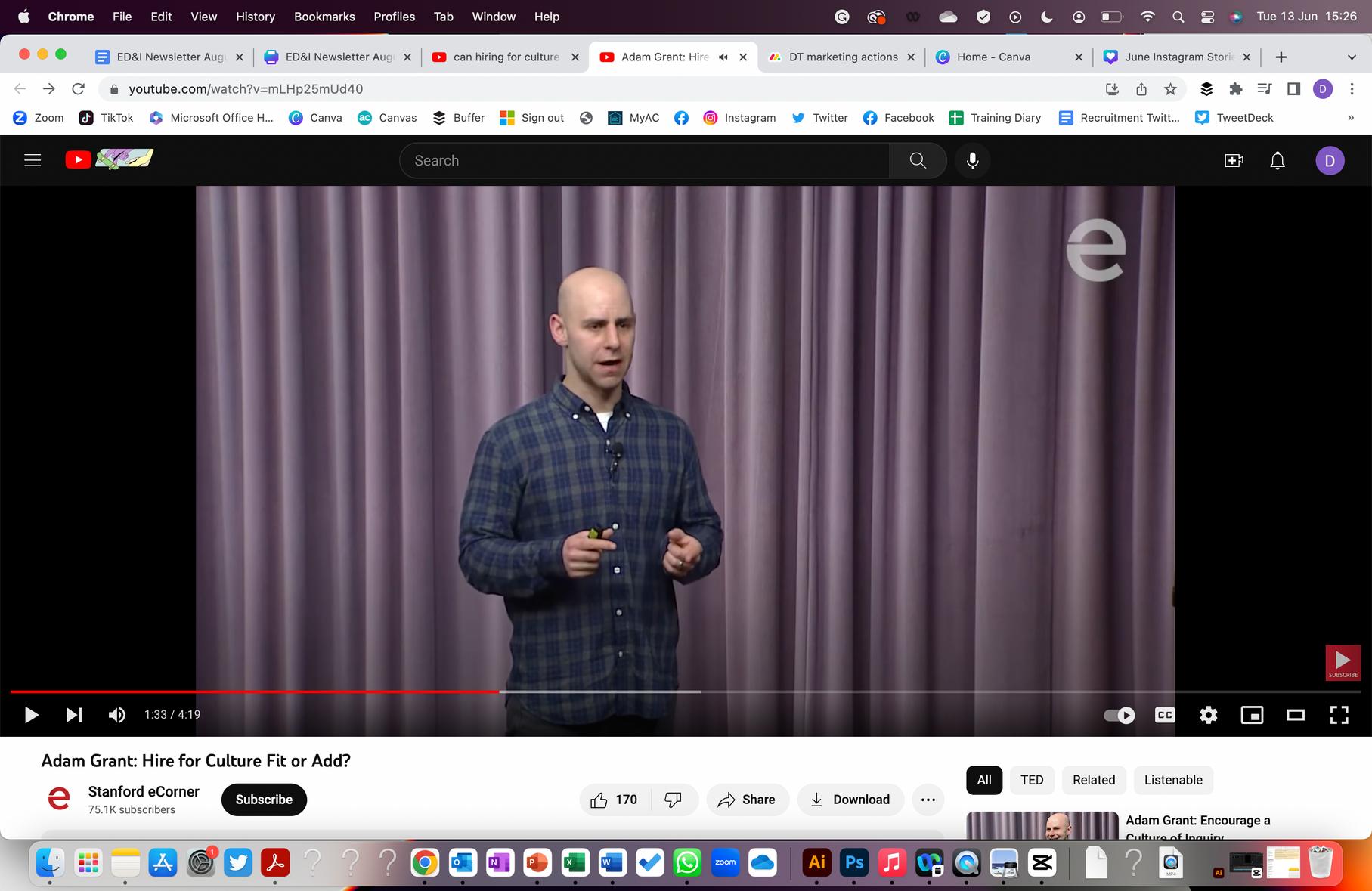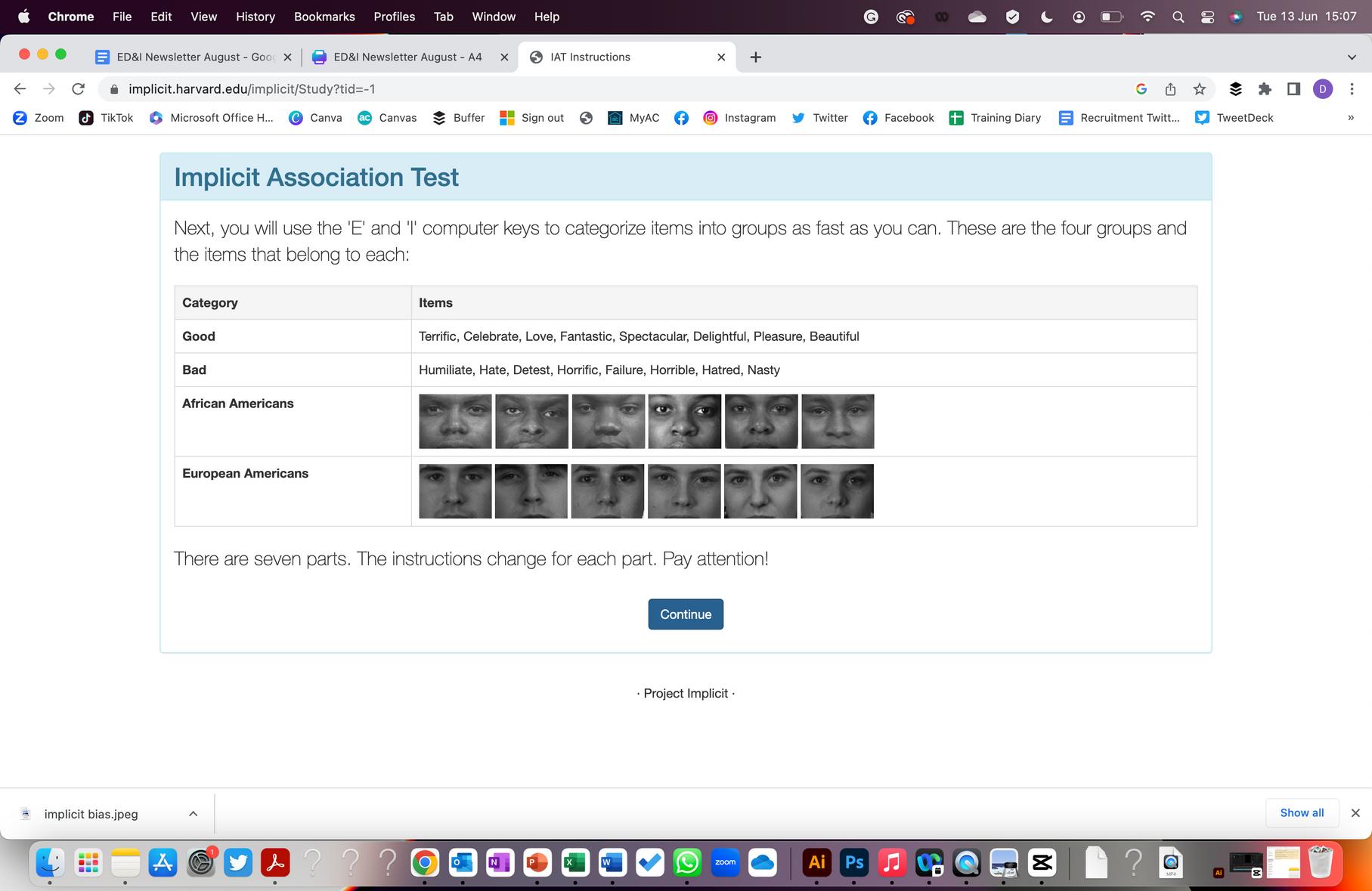ED&INEWS
Your quarterly equality, diversity and inclusion newsletter
WHAT IS UNCONSCIOUS BIAS?
The theme for our August newsletter is company culture and biases in recruitment practices. In this issue, we will explore the significance of embracing diversity and the challenges associated with biases in recruiting. We will have plenty of resources to support you and help you understand and address your unconscious biases.


Unconscious bias refers to prejudices that you may hold at a subconscious level, often without being aware of them. These biases are shaped by societal stereotypes, personal experiences, and cultural conditioning, and can influence our perceptions, decisions, and behaviours.
IN THIS ISSUE:
WE DISCUSS WHETHER HIRING FOR 'CULTURE FIT' PERPETUATES BIAS?
WE DISCUSS WAYS TO REDUCE UNCONSCIOUS BIAS

RESOURCES TO HELP YOU IDENTIFY YOUR UNCONSCIOUS BIAS
DISCOVER WAYS TO CREATE A POSITIVE WORK CULTURE
Hiring solely for culture fit can lead to a homogenous workplace that tends to reinforce existing beliefs and biases, potentially leading to
groupthink.
culture, hiring for cultural contribution emphasises bringing in individuals who can enrich and enhance the culture through their unique perspectives, experiences, and skills.
Emphasising cultural contribution encourages the recruitment of individuals from diverse backgrounds, which can lead to a more inclusive workplace Diverse teams can bring a wide range of:
cultural contribution
Hiring for rather than culture fit can be a more inclusive and effective approach to building a diverse and innovative workforce
While culture fit focuses on finding candidates who align with the existing organisational


Ideas and viewpoints
Skills and expertise
Problem-solving approaches
Creativity

HOW TO REDUCE THE OPPORTUNITY FOR UNCONSCIOUS BIAS IN THE HIRING PROCESS
By adopting these practices, you or your business can strive to hire in a way that promotes diversity, inclusion, and equal opportunities, rather than perpetuating bias It is essential to create an environment where individuals from diverse backgrounds feel welcome, valued, and empowered to contribute their unique perspectives to your company's success.
IMPLEMENT BLIND CV SCREENING
Consider implementing blind CV screening processes where personally identifiable information (such as name, gender, and age) is removed from CVs during the initial screening stage. This helps in reducing biases that may arise from unconscious associations.
CREATE DIVERSE INTERVIEW PANELS


Ensure that interview panels are diverse and inclusive, representing different backgrounds and perspectives This helps in reducing biases and creating a fair evaluation process.
BROADEN YOUR JOB ROLE CRITERIA
Instead of seeking candidates who are simply similar to the existing team, consider the broader aspects of cultural contribution Look for individuals who can contribute unique perspectives, challenge the status quo, and bring fresh ideas to the table.
LOOK AT THE DATA THAT YOU COLLECT
Regularly review hiring data to identify any disparities or patterns that may suggest bias in the process.
HOW CAN YOU CREATE A POSITIVE WORK CULTURE?
WHAT IS A WORKPLACE CULTURE?
A workplace culture is the shared values, belief systems, attitudes and set of assumptions that people in a workplace share This is shaped by individual upbringing,social and cultural context and is often implemented through reinforcement of values set by the founder(s) of the organisation
RECOGNISE AND APPRECIATE EMPLOYEES
Recognising employee contributions boosts morale and motivation, fostering a positive workplace culture.
PROMOTE WORKLIFE BALANCE




Encourage a healthy work-life balance by offering flexible work arrangements, promoting time off, and discouraging a culture of overworking
SUPPORT EMPLOYEE GROWTH AND DEVELOPMENT
Provide opportunities for skill development, training, and career advancement.
PROMOTE DIVERSITY AND INCLUSION

Embrace EDI and make all employees feel valued and respected for their unique contributions

4 WAYS TO CREATE A POSITIVE WORK CULTURE

IN THE NEWS: PEOPLE DON’T TRUST ARTIFICIAL INTELLIGENCE ON DECISION MAKING ABILITY IN RECRUITMENT


Artificial intelligence (AI) is gaining more attention as its role in the future of work becomes increasingly apparent


Advita
how
| 5 ISSUE FOUR Just1in10(14percent) wouldacceptaninterview conductedbyAI 1 IN 10



